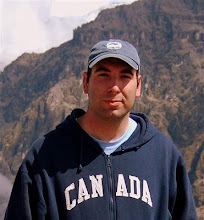It's September 2002, yet "then and now" speeches on the state of venture capital continue to be recycled for self-indulgent comic exercise. In delivering his keynote talk to the Chicago Software Association's 9th Annual Early Stage Investment Conference, one entitled "Entrepreneurship and Venture Capital in the Post-Binge Era," Bill Reichert stayed the course of one too many self-deprecating VCs. "If you could boot Powerpoint, you could probably get funding," Reichert told the audience in alluding to life pre-NASDAQ crash.
Reichert, president and managing director of Palo Alto, California-based Garage Technology Ventures, went through a laundry list of techniques entrepreneurs used in the past to land money that wouldn't work in today's tight-fisted marketplace. While market validation would once come from research groups like IDC and Gartner, Reichert says "no one cares about those guys" - they care about the customers you have. And if competition in your space served as validation, Reichert says you can forget it today -- sorry, too late, too crowded.
Yesterday's definition of due diligence was another term sheet; today, count on 6 to 12 months delay. Echoing the words of Garage Technology Ventures CEO Guy Kawasaki, Reichert talked about the transition from valuing "cereal" entrepreneurs to appreciating serial entrepreneurs, who are rich in startup experience. Earlier this year, Kawasaki told the San Francisco Business Times, "Three or four years ago people were looking for youth and romance, unencumbered by silly notions such as profitability. They were, if you will, looking for cereal entrepreneurs - CEREAL - i.e. people who are still young and eating Cheerios and Captain Crunch. Today they are looking for SERIAL entrepreneurs. Gray or no hair is good today. We've gone from pierced ears to bald heads."
Other phenomena discussed by Reichert included the changing of the golden rule that the first money in makes the rules; today, the last money in calls the shots. "I get to restructure everything that went before," said Reichert.
Since starting three years ago, Garage Technology Ventures, formerly Garage.com, has helped connect entrepreneurs with high-tech venture capitalists. Having invested in and syndicated over 80 financings to the tune of over $300 million, Garage's Chicago-area footprint has been left with funding of RocketCheck, VisaNow, and iNest Realty. One is gone, one is struggling, and one is profitable. Garage makes money as a middleman, garnering fees from companies that find financing through its services and also from registration for events like its "Bootcamp for Startups" series. In introducing Reichert, Bill Weaver, a partner in Sachnoff & Weaver, credited Garage with putting boot camps for entrepreneurs on the radar screen.
Left off Reichert's list of then and now moments was the idea that venture capital raising entities were solid IPO candidates. Garage flirted with the idea until late 2000, shelving its IPO aspirations around the same time as the perpetually diseased incubator IdeaLab.
While Reichert offered plenty of proof that VCs are human and make mistakes (he said some found hope during the summer of 2000 in looking at optical components for telecommunications, for example), he maintained the authority of a prophet in delivering his top ten forces shaping entrepreurial activity. Reichert encourages companies to "plan for the worst, it's the most likely outcome," and recognize that pessimists who see the glass as being half-empty are necessary in an organization, ideally in the capacity of CFO.
Perhaps in the hopes of driving down the knocks at the venture community's door, Reichert reminded attendees that "not all good companies are venture fundable." Reichert questioned the logic of entrepreneurs who say that VCs are supposed to take risks, emphasizing that VCs are interested in a return for their investors -- often universities and large foundations.
When asked what's fundable in Chicago, Reichert conceded that his answer was "very generic" and said that he could not see anything to hold back any sector or offer words to trump one over another.
"Clearly, what's most likely to be fundable here is an enterprise that can build on the talent pool here. That can draw on the extraordinary resources here that you've got -- you've got the universities, you've got Argonne, Motorola, a lot of other technology companies," said Reichert. "Some of them are downsizing and spinning off talent ... so building on that talent, marrying it with a generation of entrepreneurs that have built successful companies in Chicago."
Subscribe to:
Post Comments (Atom)
About Me

- Jeff Meredith
- I am a researcher, reporter and conference producer with experience spanning the aerospace & defense, biopharma, chemical, consumer electronics, energy, homeland security, human resources and IT markets.
In January I rejoined Worldwide Business Research, where I serve as program manager for Consumer Returns, SCMchem and the Digital Travel Summit.
I have an M.S. in science and medical journalism from Boston University (Dec 2008) and did my undergraduate work at Indiana University, majoring in journalism and political science (May 2001). After interning for the Chicago Tribune as a collegian, I landed my first real gig in the Windy City: I was a senior technology writer for I-Street magazine (Sept 2001-Feb 2003). I covered nanotech and biotech startups. From March-November 2003, I worked for a newsletter publisher (Exchange Monitor Publications) in DC, covering congressional hearings, the NRC & DHS.

Sally Lightfood Crab
No comments:
Post a Comment